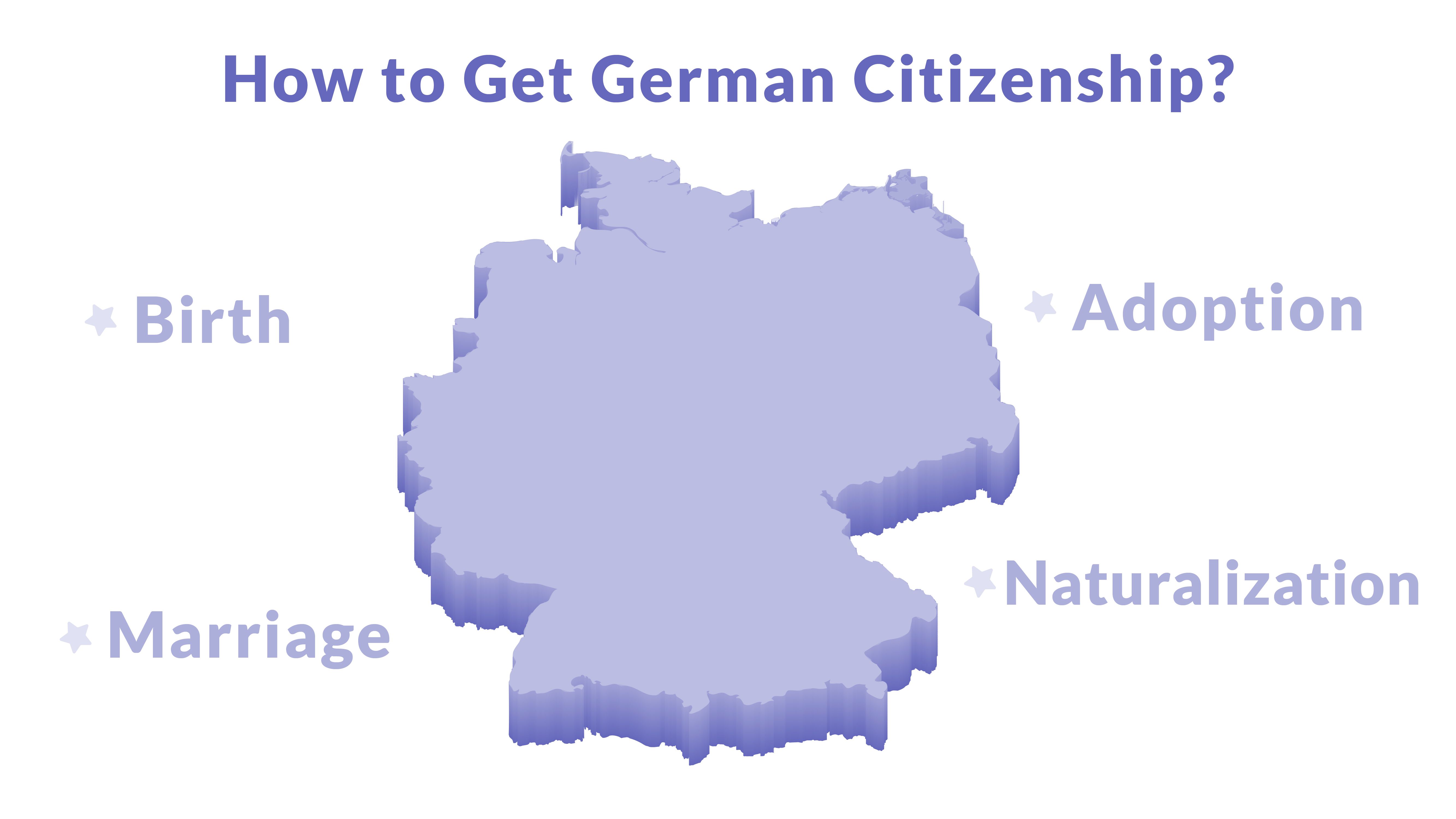
In recent years, Germany has become an increasingly popular destination for expats and immigrants from all over the world. With Germany's strong economy, high quality of life, and rich cultural heritage, it's no wonder that many people are interested in making Germany their permanent home by obtaining German citizenship.
If you are considering applying for a German passport, this guide will provide you with all the essential information you need to know about the eligibility requirements and application process.
Whether you are an expat living in Germany or a German language learner planning to make Germany your permanent home, this guide will help you navigate the complex world of German law and increase your chances of successfully obtaining German citizenship.
Learn German with Langster
Who Is Eligible to Acquire German Citizenship?
Before you apply for German citizenship, it is important to understand the eligibility requirements set by the German government. Here are some general criteria that all applicants must meet:
- You must be at least 18 years old.
- You must have legally resided in Germany for at least eight years (or less, in more specific situations — we’ll cover those in greater detail below).
- You must pass a German language test at the B1 level or higher.
- You must be financially stable and not rely on welfare benefits.
- You must renounce any previous citizenship(s) (some exceptions also apply).
However, these requirements may vary depending on your individual circumstances, such as your country of origin and current residency status. In the following sections, we take a closer look at different ways to obtain German citizenship.

German Citizenship by Birth
German citizenship by birth can be acquired through two principles:
By Right of Blood (Jus Sanguinis / Abstammungsprinzip)
This principle means that you can claim German citizenship by descent if you are the direct descendant of a German parent. It applies to both mothers and fathers, meaning that if either one of your biological parents is a German citizen at the time of your birth, you have a right to German citizenship.
However, in order to qualify for this type of German citizenship, your birth must be registered within one year with the competent German mission in the country where you were born. If the registration is not completed within this timeframe, you may lose the opportunity to claim German citizenship by descent.
By Right of Soil (Jus Soli / Geburtsortsprinzip)
This principle grants German citizenship to children born within the borders of Germany, even if their parents are not German citizens.
To qualify under this principle, at least one of your foreign parents must have been a permanent resident in Germany for a minimum of eight years at the time of your birth and have the necessary permissions to stay in Germany indefinitely.
Upon reaching 18 years of age, you will be given a five-year window to make a decision between retaining German citizenship or adopting your parents' citizenship.
German Citizenship by Marriage
If you marry a German citizen or a person who has been naturalized as a German citizen, you can apply for citizenship based on your marriage.
Applicants are required to demonstrate a basic understanding of the German language and the ability to financially sustain themselves or provide proof that their spouse supports them.
German Citizenship by Adoption
German citizenship by adoption is straightforward. Once the adoption process is legally finalized, the adopted child is granted immediate citizenship. The process must comply with German adoption laws, and the adoptive parents must meet certain eligibility criteria.
Adopted children receive the same rights and responsibilities as any other German citizen. Dual citizenship may be possible depending on the child’s birth country.
German Citizenship by Naturalization (Einbürgerung)

The most prevalent method for expats to obtain German citizenship is through a naturalization process that may span several months.
To be eligible for citizenship via naturalization, you must meet these criteria:
- You've been living in Germany legally for over eight years.
- You and your family are financially independent, without dependence on unemployment benefits, housing benefits, or child allowances (Kinderzuschlag).
- You have a clean criminal record.
- You've passed the naturalisation test.
- You're ready to renounce your former nationality unless they are from another EU member state, Switzerland, or Norway.
- You uphold the democratic principles outlined in the German constitution.
Exceptions to the Eight-Year Residency Requirement
Some exceptions to the eight-year residency requirement for those applying for German nationality include:
- If you've completed a German language integration course at a Community College (Volkshochsschule) and resided in Germany for seven continuous years, you may apply for citizenship immediately.
- If you can demonstrate superior proficiency in the German language (level B2 or higher) and have lived in Germany for six continuous years.
- If you've been married to a German citizen for at least two years and have legally resided in Germany for a minimum of three continuous years.
German Language Proficiency
Additionally, you must exhibit sufficient proficiency in the German language (level B1), which can be validated by any of the following:
- Certificates like the Deutschtest für Zuwanderer or equivalent.
- A certificate proving successful completion of a language course from an integration program.
- A German secondary school leaving certificate or equivalent, with a minimum “pass” grade in German.
- Admission into grade 10 of a German upper secondary school (Realschule, Gesamtschule, Gymnasium) with a minimum “pass” grade in German.
- Four years of attendance at a German school, with a minimum “pass” grade in German.
- Studies at a German university or successful completion of a German vocational training course.
If you don't meet all the prerequisites, you may still qualify for discretionary naturalization under certain conditions at the discretion of your local authorities.
Other Options
Apart from the commonly known methods, there are other lesser-known yet valid routes to obtaining German citizenship. Here are a few additional options:
Legitimization
This pathway is available to individuals born out of wedlock before 1975 to a German father and a foreign mother who couldn't claim citizenship by descent. If their parents get married later on, they can obtain citizenship through legitimization.
Essentially, this means that the parents' marriage validates their child's status, thereby conferring the father's German citizenship onto the child.
Citizenship for Ethnic German Resettlers
Individuals with ancestry tracing back to Germans originally living in the former Soviet Union and other Eastern European countries have the opportunity to obtain German citizenship if they can prove their German heritage. Once your German ancestry is authenticated and acknowledged, German citizenship is automatically granted.
However, it's crucial to be aware that this process only applies to those born before 1993.
So, How Long Do I Need to Live in Germany to Apply for Citizenship?
With so much nuanced information provided above, it’s easy to get confused about which of the requirements apply specifically to you. Here’s a quick summary table:
| Pathway | Residency Requirement | Additional Requirements |
|---|---|---|
| Citizenship by Naturalization | 7 years | Participation in integration courses. |
| 6 years | Completion of special integration courses. | |
| Citizenship by Marriage | 3 years | Marriage to a German citizen (must have been married for a minimum of two years) |
| Citizenship by Birth/Descent | Immediately | After familial connection is verified (e.g., German parent or grandparent for descendants of Nazi victims) |
| Citizenship by Adoption | Immediately | After completion of the adoption process. |
| Pathway | Residency Requirement | Additional Requirements |
|---|---|---|
| Citizenship by Naturalization | 7 years | Participation in integration courses. |
| 6 years | Completion of special integration courses. | |
| Citizenship by Marriage | 3 years | Marriage to a German citizen (must have been married for a minimum of two years) |
| Citizenship by Birth/Descent | Immediately | After familial connection is verified (e.g., German parent or grandparent for descendants of Nazi victims) |
| Citizenship by Adoption | Immediately | After completion of the adoption process. |
The Application Process

Once you have determined that you meet the eligibility requirements, you can begin the application process for German citizenship. Here are the key steps you need to follow:
- Identify the correct German authorities. The authority responsible for citizenship matters depends on your residing federal state (Bundesland). Check with your local foreigners’ office (Ausländerbehörde) or citizens’ office (Bürgeramt) to identify the correct authority.
- Schedule a consultation. Your local naturalization authority will arrange a consultation meeting to discuss all necessary details. If you are abroad during this time, your application process will be handled by your local German mission.
- Receive necessary information and forms. During your initial consultation, the citizenship authority will provide you with all required information and application forms.
- Gather the required documentation. Collect all the necessary documents as per the instructions given during the consultation. This typically includes your passport, residence permit, birth certificate, and proof of language proficiency, but some additional documents, such as a marriage certificate, may be required, depending on your personal case.
- Submit your application. Submit your completed application to the appropriate authority along with the required documentation and application fee.
- Attend a citizenship interview. After submitting your application, you will be called in for an interview where a government official will ask you questions about your personal background, language skills, and reasons for wanting German citizenship.
- Wait for processing. Your application will then be processed. The processing time for German citizenship applications can vary, but you should typically receive a response within 6-8 months.
- Take the citizenship test. If your application is approved, you will be required to take a naturalization test (Einbürgerungstest) to prove your knowledge of German history, culture, and politics.
- Attend a naturalization ceremony. Upon passing the citizenship test, you will be invited to attend a naturalization ceremony where you will officially become a German citizen.
Note: If you have children under the age of 18 and you wish for them to acquire German nationality, you can request their naturalization along with your application.
How Much Does It Cost?
The fee for applying for German citizenship through naturalization is 255 euros. If applications are being submitted for dependent children under 16 years of age, an additional charge of 51 euros per child is applicable.
There is also a mandatory fee of 25 euros for the naturalization test. Upon successful completion of your application, you will be asked to pay an extra 25 euros for your naturalization certificate (Einbürgerungszusicherung).
Important Advice
- Start the process as early as possible. Given that the processing time for citizenship applications can take several months, it is important to start the process well in advance.
- Take advantage of language courses. The language test is often one of the biggest challenges for applicants. To improve your chances, consider taking German language courses or attending a language school.
- Understand the dual citizenship rules. While Germany generally does not allow dual citizenship, there are some exceptions. Make sure to understand the rules and regulations surrounding this before renouncing any previous citizenship(s).
Is It Worth It?
Despite the rigorous process, the advantages of acquiring German citizenship are considerable, leading to sustained high demand. As a German citizen, you will enjoy:
- The privilege to vote in German and European Parliament elections.
- Eligibility for employment in Germany's civil service.
- The liberty to travel freely within the European Union, along with the right to live and work in any EU member state without requiring a residence permit.
- Relief from certain administrative tasks (no more trips to the immigration office).
- Unrestricted access to job opportunities in the German market.
- Entitlement to consular protection.
- The privilege of possessing a German passport, which allows visa-free travel to over 180 countries.
However, as a German citizen, you are expected to fulfill certain responsibilities, including integrating into German society, abiding by German basic law, and undertaking military service when necessary.
The Bottom Line

Obtaining German citizenship can be a long and challenging process, but the benefits of becoming a German citizen are well worth it. With this guide, you now have all the essential information and advice to help you navigate the application process with confidence.
Remember to stay informed, and follow all necessary steps to increase your chances of successfully obtaining German citizenship. Our Langster app will be an excellent addition to your language test preparation, for sure. Best of luck on your journey towards becoming a German citizen!
Learn German with Langster









